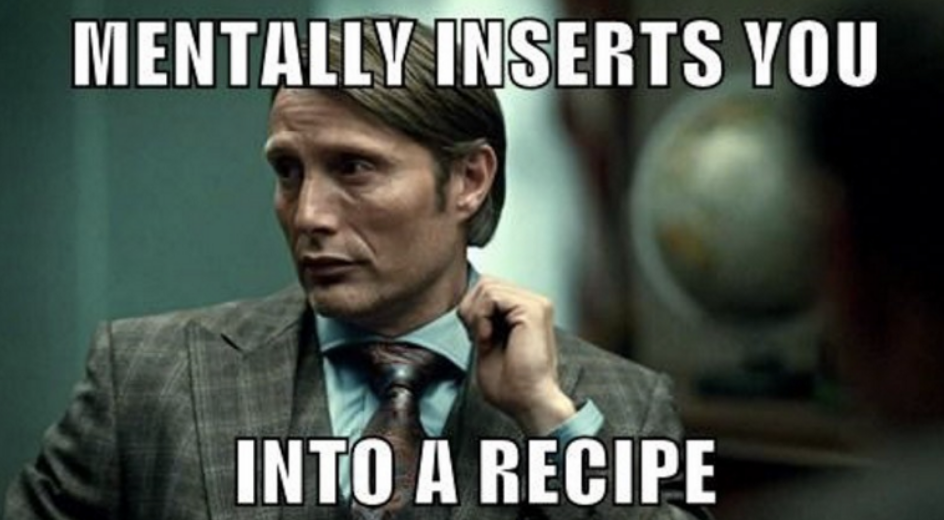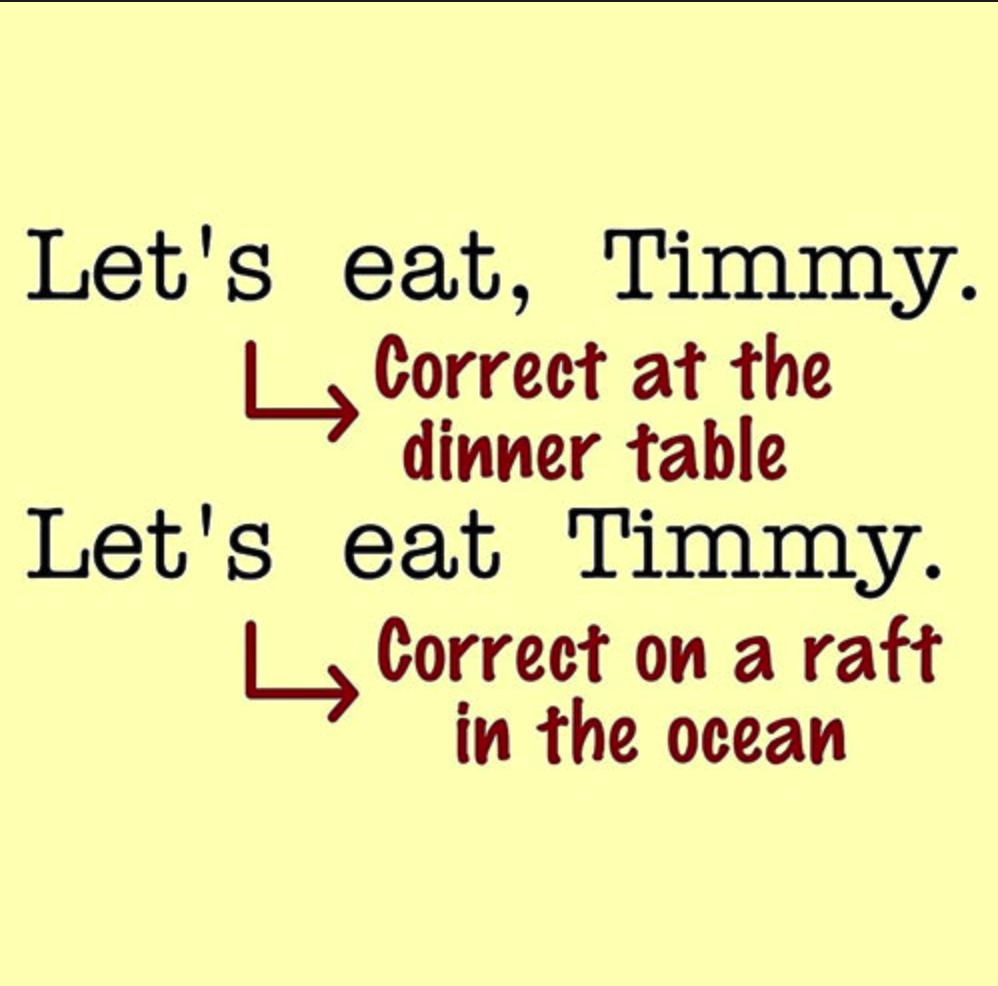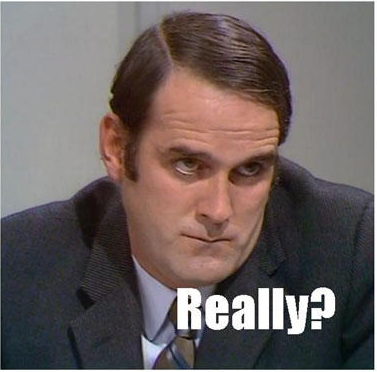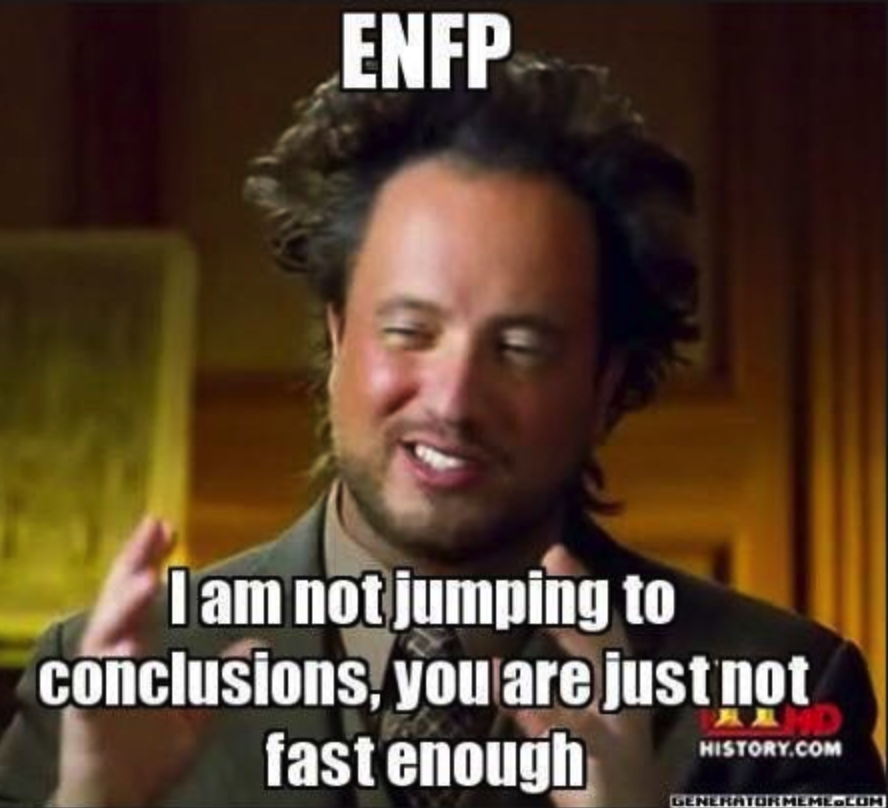
Personality traits make for not only a fascinating study, but have continued to be at the heart of spirited debate since probably the dawn of time. What makes up our personality? Where does it come from? Is it malleable? What forms our personalities? Nature, nurture or both?
***Apologies for the delay between blogs. Hubby and I both caught COVID at the same time and it turned into pneumonia. We’ve been sick so long I am pretty sure my son (Spawn) was on the verge of going feral by the time I had enough strength to actually cook a meal instead of leaving him to forage.

Anyway….
I am one of the worst people in the world to get sick—that ‘personality’ thing. It takes forever for me to recover because of my pathological guilt that I am not cleaning, cooking, working, and doing all the things I normally do to take care of others.
I’ll get to taking care of myself one day…one day.
As I have ‘joked’ about previously, I am not Type A, I am Type A+ because I actually took time to do the extra credit. This, among other recent events, got me thinking about personality.
During my tenure of staying in bed (and praying for death), I watched a lot of television. I don’t watch television like normal people, because I am still working. I’m breaking down structure, making notes, paying attention to dialogue, etc.
Why do I mention this?
Because we happened to watch an episode of Bull where they mentioned the Mach-IV test.
Personality Confessions

I don’t know about y’all but I love personality tests. From the Myers-Brigg (dead split between INFP and ENFP) to the Enneagram (a 2, ‘The Helper’ or an 8, ‘The Challenger’ depending on the day), I’m captivated when it comes to learning more about myself and others.
Yes, I am one to pester friends and loved ones to take a personality quiz. I find it so interesting to see not only why and where we connect but to also see why and how we fail to understand one another.
For instance, my personality is comfortable with making decisions off gut instinct and intuition….which is a great way to make my husband break out in hives. By understanding how his personality differs from mine, I know that if there is a big decision to be made, ideally I’ll present him with charts, graphs and articles.
Back to the Mach-IV test.
How Machiavellian Am I?

As I mentioned, Hubby and I were both sick and watching the show Bull. Bull is a trial scientist and his specialty is choosing the best jury for the best outcome. In every show, he psychologically profiles his ideal jury pool. In this particular episode, he needed a jury of people who would be sympathetic to a person breaking the rules for the right reasons.
Niccolò Machiavelli was a Renaissance political philosopher who’s responsible for the phrase, “The ends justify the means.”
Obviously, this T.V. episode is where I learned about the Mach-IV test, and, because we weren’t doing much of anything else, Hubby and I both took the test.
My results? Um…let’s just say that Uncle Nicky would be very, very proud.
Yet, after taking the test—which might lead one to believe I am a functioning sociopath—it really threw me for a loop. Why? Because, if anything, I am the antithesis of what this ‘personality test’ claims I should be.
Being the Queen of Overthinking I wondered how this could be. Then I thought about the test. All it scores is what I believe to be true. There is no allowance for how I then filter that information through my moral matrix and then translate this into how I then ACT.
Taken at face value, one could (as I mentioned) believe this test shows I am a functioning sociopath. But, viewed another way, it can also mean that I am very jaded about the human condition and that is why I often overcorrect.
What Do I BELIEVE?

If you go take the Mach-IV test you could probably end up with vastly different scores depending on how you approach your answers. They give a fairly broad scale for answering from ‘Strongly Agree’ to ‘Moderately Agree’ all the way down the line.
Whenever I take tests I make it a point to avoid overthinking. I also rarely hedge my answers. Ironically, that is how I am in person. I generally will ‘Strongly Agree’ or ‘Strongly Disagree’ on pretty much everything (unless I know nothing about the topic). So these two factors alone probably impacted my score.
When I get a ‘question’ like: Honesty is the best policy all the time.
Are you NUTS? NO! If I were in wartime Germany hiding Anne Frank in my attic and the Nazis stopped by? Trust me, I would have been lying my tail off.
But look at the wording of the question. It states honesty is best all the time. Just because I believe that honesty all the time is a stupid policy doesn’t mean, by default, I believe in dishonesty as my go-to policy.
Long story short, I believe the test revealed more cynicism than psychopathy.
Personality & the Moral Matrix

And obviously, this is what started my overthinking. I was rather horrified when I saw all the articles and blogs about how those with high scores were natural con artists, bad company, opportunists and horrible human beings in general.
Just because I strongly agree that “It is wise to flatter important people” doesn’t mean I am wise. In fact, I’ve lost count of how many ‘opportunities’ I’ve missed out on simply because I flatly refused to “flatter important people.” Would it have been wise? Sure.
But I’ve had a lifelong habit of being very, very ‘unwise.’
I don’t want any advantage or benefit that I cannot earn honestly. In fact, not too long ago I even blogged about turning down the chance to make a LOT of fast cash and ‘earn’ the title of USA TODAY BEST SELLING AUTHOR in front of my name. Why? Because the whole plan seemed shadier than a guy in a panel van giving away Rolex watches in Gucci handbags with the purchase of a pound of ground beef.
I blogged for almost a year shaming the whole FREE and exposure dollar BS. Would it have probably been wise for me to flatter the likes of Arianna Huffington? Probably. I sure would have been called the ‘c’ word a lot less (‘caring’ NOT that word).
My point in all of this being that two people can have the exact same ‘personality’ yet be different in every way. We all have a moral matrix, a filter that impacts how what we believe, that then translates into our actions and behavior.
Which is probably why personality tests are so interesting. What I didn’t really like about the Mach-IV test is every other ‘personality’ test accounts for the good and the bad. The Myers-Brigg gives a profile of what each personality type ‘looks like’ when they are healthy versus when they are ‘out of whack.’ Same with the Enneagram and most other personality tests I have seen.
Apparently the Mach-IV test doesn’t believe there is such thing as a healthy cynic, which brings me to my point about character creation….
Personality and Characters

The other personality tests I have taken didn’t throw me into a tailspin of self-evaluation, in large part because most of them aren’t so black-and-white. High Mach-IV score = con artist psychopath and low Mach-IV score = good and kind human.
But let’s take the idea of the Mach-IV test and look at how we can apply this to character creation.
Often the antagonist is the shadow side of the protagonist. The villain is the shadow self of the hero. Ironically, this duality and mirroring is what a) makes for fantastic conflict b) drives the protagonist to arc and change and c) keeps the antagonist (usually a villain) at a disadvantage.
I caveat that last point for a reason. First, not all antagonists are villains (check out my blog on the Big Boss Troublemaker) and usually villains do not arc. This is what, ultimately makes them weak enough to be defeated by a fully self-actualized protagonist.
Obviously most people don’t score high on the Mach-IV test. They give a bell curve of how most people score at the end, but the best fiction usually operates in extremes, characters included.
In fact, two of the most famous characters in literature probably would have had identical scores.
Sherlock Holmes & Professor James Moriarty

From the original Sir Arthur Conan Doyle series to the BBC series with Benedict Cumberbatch (my favorite), the famous consulting detective regularly crosses swords with his mirror twin and consulting criminal, Professor James Moriarty.
Ironically, the very quality that makes Sherlock ideal to hunt down Moriarty is the quality they most share. They are both high-functioning sociopaths. Sherlock is willing to lie, manipulate and break every rule to attain his desired result. Like Moriarty, he believes the ends justify the means.
Unlike Moriarty, however, Sherlock is bound by a strong moral compass. There are some lines he won’t cross…which is what places him, ON HIS OWN, at distinct a disadvantage when going against his arch nemesis.
But we can’t have Sherlock too perfect. What makes him an excellent consulting detective also makes him struggle when it comes to interpersonal skills.
***I’ve read the originals and Sherlock was actually ‘too perfect’ of a character. He was much kinder and nobler than one could pull off with a modern audience. I believe contemporary versions of Sherlock have actually played up the ‘high-functioning sociopath’ angle much more than the original stories to make him more flawed.
Balance the Party

If I just stated that Sherlock—by virtue of having a moral compass—is automatically placed at an inherent disadvantage when pitted against the cold-blooded Moriarty, then how can Sherlock ever hope to win?
Sherlock has a level of self-awareness Moriarty will never possess. While the great detective knows he has almost no intellectual equal, he also appreciates he can’t rely on brain-power alone.
There is more required if he wants wants to win the war, not just the battles. Sherlock has the ability to set his ego aside, recognize potential deficiencies, then use those around him as a bulwark.
This is why Dr. Watson makes such a terrific foil.
Sherlock understands his lack of compassion—which translates into terrible people skills—can be a hinderance. This is why Watson acts as a) a sort of angel on his shoulder to whisper in his ear and b) someone to smooth ruffled feathers after Sherlock has trampled all over their feelings.
The same might be said of Detective Lestrade. Lestrade frequently serves as an interface between Sherlock and the public and the legal system. He also runs interference when Sherlock is his own worst enemy.
Conversely, Moriarty revels in his superiority and is only content to be a puppet master. Lacking even a modicum of self-awareness cannot help but eventually weaken any advantage he might gain simply by being the ‘most ruthless.’
Personality & Conflict

Conflict is what turns pages. It is also what turns a reader into a super fan. We, as writers, no longer have the luxury of taking our sweet time to hook a reader then never let them go.
Conflict is more than just ‘bad things happening.’ If we want to keep our readers up until three in the morning—simultaneously hating and loving us—we need to maintain constant tension.
Obviously, we have to pace this or it will wear the reader out. Think bad action movie.
Another car chase?

Yet, bookmarks = DEATH. Ideally, we will leave no ‘good spot’ to stop reading. One of the best ways to inject tension we can easily ramp up or taper off is in the interpersonal realm.
How do the characters’ personalities compliment/clash? This is how we can create tension on multiple levels.
As we see with Sherlock and Dr. Watson, they are polar opposites. While both have admiration/respect for one another, they clash all the time with each other as well as with other characters within their orbit.
Sherlock stampedes over the feelings of key witnesses and Watson has to step in to do damage control. Or, Watson loses his cool and costs them vital evidence/time. Sherlock then has to up his game to make up for his friend’s rashness.
Use the Science & Study Personality

Early on, I mentioned a couple of the most popular personality tests. When you are crafting characters, try using these tests. What are the personality types most likely to get under their skin and why? How do they make a character stronger or weaker? In what ways do they ‘push each other’s buttons’?
As I mentioned in the beginning, I am an ENFP. I’m extremely comfortable making snap decisions without fifty pages of research, but that is why two of my closest friends are INTJs.
I ALREADY KNOW Grace and Cait are going to do the fifty pages of research on every bit of minutiae, so when I need information quick? I call them. They’re wonderful treasure troves of go-to data.
Sometimes, they need to make snap judgements with little prep. Who do they call? Me.
Our differences are also where we most clash.
I might want to get to writing something instantly, but Cait makes me wait for her to go do all the research and fit all the pieces together. It makes me bananas because I am a GO GIRL. Yet, ultimately she saves me a TON of time and mistakes by so heavily front-loading what we do.
When it comes to the Mach-IV test, one of my closest friends Beth scored as a low-Mach. We balance each other out fantastically. When I am too dour? I know I can call her and she will buoy my spirits and remind me why I love helping people so much.
Conversely, when she has a new and shiny idea, I’m the one to make sure she takes into consideration legal and market considerations to protect all her hard work. I often worry I’m being a Debbie Downer, but I care enough to warn her about potential risks before she’s too vested.
In the End
Remember that most great stories ignite in the extremes. A MAJOR issue I see with new authors is they frequently don’t go extreme enough to capture interest. Yet, we also have to balance out these extreme characters because what makes them great, can also undo them (again, think Sherlock). They very often are their own worst enemies.
Make sure to check for any character redundancies. That is another problem I see in new or weak writing. Often there are two or more ‘meh’ characters that could be combined into a singular personality that would be far stronger.
What Are Your Thoughts?
I LOVE hearing from you! Do you enjoy personality tests? Have you found them to be fairly accurate? Are they a good way of seeing your strengths while also diagnosing your weaknesses?
Do you see how this might be a useful tool for creating characters? I often find characters in film and literature when I am crafting something for fiction, then cast from there. Why reinvent the wheel? The wheel works. If we study the books, films, show that had us biting our nails unable to stop, then they might be at least worth studying and using a similar template.
What are some of your favorite duos or casts where the differences in personality made the story come alive? From Deadwood to Ozark to The Office to Buffy the Vampire Slayer I can think of many great casts to work from.
So again, any thoughts, questions, opinions? I do love hearing from you.
What do you WIN? For the month of MARCH, for everyone who leaves a comment, I will put your name in a hat. If you comment and link back to my blog on your blog, you get your name in the hat twice.
What do you win?
The unvarnished truth from yours truly. I will pick a winner once a month and it will be a critique of the first 20 pages of your novel, or your query letter, or your synopsis (5 pages or less).
***I will announce previous winners next post and will have new classes available soon.
The post Personality Traits: Creating Dimensional Characters appeared first on Kristen Lamb.
